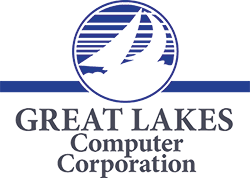 Most small businesses experience IT problems that are totally preventable had they taken the correct action in the first place. Who knows how many millions (billions?) of dollars get wasted each year because of this? Yet not taking wise action jeopardizes your entire business.
Most small businesses experience IT problems that are totally preventable had they taken the correct action in the first place. Who knows how many millions (billions?) of dollars get wasted each year because of this? Yet not taking wise action jeopardizes your entire business.
Here are some of the most common IT support and security mistakes small businesses make:
1. No Disaster Recovery Plan Whatsoever:
Cloud computing has made backing up your data so inexpensive and easy to do. Don’t fall for excuses that come to mind, such as thinking backing up your data doesn’t make financial sense, given how little you have to actually back up. Or maybe you can’t afford a full-time IT guy. On the surface, these excuses appear true. However, the reality is backing your data up to the cloud (at minimum) is so simple there’s no reason not to do it. The alternative – potentially losing all your data and your business – is much worse.
2. Think “If It Isn’t Broke, Don’t Fix It:”
All the behavior on your network can appear to be going well on the surface. You don’t notice any slowdown as you and your employees use your network. There’s no major viruses causing chaos, it seems. So everything’s okay, right? Maybe and maybe not. Errors, like corrupted backups, bad tape drives, or backup server failures can happen all the time without regular monitoring. When it comes to data recovery, you can’t play games. Make sure you monitor your network or have a computer and network maintenance team do it for you.
3. Using Consumer Anti-Virus instead of Business Anti-Virus:
Consumer products are cheaper and do work well, but they cause logistical hassles for businesses. That’s because each employee can be an administrator for their own antivirus. Ever thought you had too many generals on the battlefield? That cliché goes to a whole new level if you let your employees administer their antivirus. Make sure you use a business version. It makes upgrading easy, and it lessens the opportunity for employee mistakes.
4. Don’t Assume Upgrades are Made Automatically:
Unfortunately, this routinely happens at the small business level. These patches should happen automatically. But that’s not always the case. Smart hackers wait for their golden opportunity to access your network and before you know it, a data breach has occurred. And when a new patch gets released, that’s a perfect time for them to see what access they can get. The simple solution is to have someone responsible for constantly monitoring your network for all the latest security upgrades.
5. Not Educating Your Users:
A recent survey from GFI software found 44% of small businesses “sometimes” educate employees, while 22% “rarely” do so, and 6% admit to “never” educating their employees. If you add those numbers up, that means 72% of businesses do not consistently educate their employees on safe computer and network use.
And most data security breaches happen because of user error! Remember to educate your users on safe workplace computer use regularly throughout the year.
Find out more about remote monitoring and data security for your small business:




